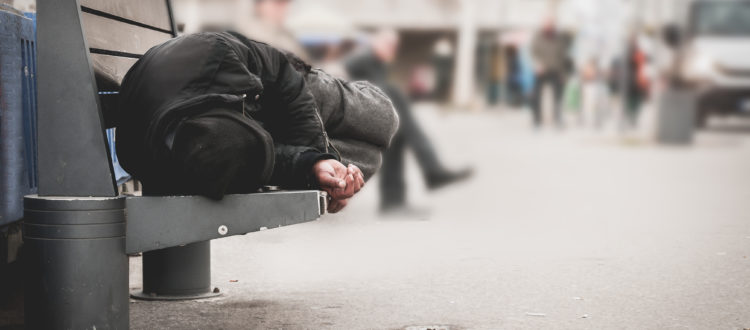CA Homeless Suffer While State Gov’t Funds Illegal Aliens
Published on June 15th, 2022
Homelessness is a massive problem in California.
One report from Forbes back in 2020 ranked six California cities in the top ten (including three cities in the top five) in terms of homeless population.
This same report pointed out that roughly 28% of the nation’s homeless population (over 161K people) were found in California alone.
Another homelessness stat from Forbes about California stands out.
“California is also particularly notable as accounting for more than half of all unsheltered homeless people in the entire country at 51% or 113,660.”
A 2021 report from the Department of Housing and Urban Development backs up these findings, stating that approximately 51K or so of the state’s homeless population is sheltered.
The rest? They’re out on the streets.
According to a comprehensive March 2022 report from The Guardian, the homeless population in California has also risen 31% since 2010.
At the end of the day, California is filled to the brim with people and its resources are spread thin.
Many of its most vulnerable citizens are struggling to scrape by in this difficult environment.
What’s jarring about this situation is that we’re doling out enormous sums of taxpayer-funded benefits to illegal aliens while our own citizens suffer.
As we’ve chronicled in the past, California has given out generous healthcare subsidies, free perks at state universities, and even a legal defense fund for illegal aliens.
It doesn’t stop there.
According to a recent writeup in KQED, there’s plans for even more benefits for illegal aliens in California.
Besides further expansion of Medi-Cal, here’s what they plan to do with the budget surplus.
- $284 million to expand nutrition assistance under the Food for All bill to undocumented immigrants of all ages (not just those over 55, as Newsom proposes).
- $400 million to increase the state’s earned income tax credit to a minimum of $255 for workers who earn less than $30,000 a year.
- An expansion of the state’s young child tax credit, for families with children under 6.”
This is the opposite of how the state government should work.
The tax-paying citizens who live there should be prioritized in terms of the resources at their disposal.
These resources should be used to keep society functioning in an orderly fashion, and to assist the most vulnerable members of society.
Those are the people we have an obligation to first, not non-citizens who are illegally residing in our state.
Our state government officials seem to have forgotten who they are elected to serve.
Until they start to remember, the homelessness crisis is only going to get worse.





